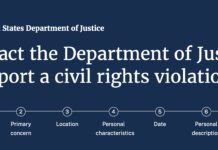In a startling move, Virginia Attorney General Mark Herring announced on December 22 that Virginia will sever concealed handgun permit (CHP) reciprocity ties with 25 of 30 states. This will affect hundreds, maybe thousands, of Gun Tests readers who reside in Tennessee and other states bordering the Commonwealth, and perhaps millions of people nationwide.

Effective Feb. 1, 2016, — about the time this issue arrives in your mailbox —Virginia will no longer honor carry permits from the following states: Alaska, Arizona, Arkansas, Delaware, Florida, Idaho, Indiana, Kansas, Kentucky, Louisiana, Minnesota, Mississippi, Montana, Nebraska, New Mexico, North Dakota, North Carolina, Ohio, Pennsylvania, South Carolina, South Dakota, Tennessee, Washington, Wisconsin, and Wyoming. The following permits will continue to be recognized: West Virginia, Michigan, Oklahoma, Texas and Utah. The move also means several states will no longer recognize Virginia’s concealed-carry permits because they require mutual recognition of permits. Those include Florida, Louisiana, North Dakota, Pennsylvania, South Carolina, and Wyoming.
Speaking about this audit and update, Attorney General Herring said, “Virginia, and nearly every other state in the country, have recognized that carrying a concealed handgun is a significant responsibility that should be extended only to those who have gone through a process to prove a level of competency and responsibility.”
“The standards for proving competency and responsibility are up to each state,” Herring said, “and the General Assembly has established Virginia’s standards for whom it considers capable of safely carrying a concealed handgun. Those standards should be applied evenly, consistently, and fairly to anyone who wants to lawfully conceal a handgun in Virginia.”
Herring added, “Under state law, the Virginia State Police can agree to recognize permits issued in another state if that state’s laws, disqualifiers, and safeguards are adequate to prevent possession of a permit by persons who would be denied a permit in the Commonwealth. For much of the last year, my team and I have worked with the Virginia State Police to conduct an audit and update of the states whose permits are recognized in Virginia. This has been a deliberate, thorough, professional review of the states that supposedly meet or exceed Virginia’s standards.”
Members of the Virginia House of Delegates criticized the actions of Attorney General Herring.
“The House of Delegates will immediately begin a careful review of the Attorney General’s findings,” said Speaker William J. Howell of Stafford. “Unfortunately, I have little doubt as to his true motivations. He is damaging the integrity of the office he holds.”
“This is another Washington-style overreach from a nakedly partisan attorney general,” saidDelegate Rob Bell of Albemarle.”The attorney general’s job is to faithfully interpret and enforce the law of the Commonwealth. Virginians who have concealed-carry permits may lose the ability to protect themselves when traveling in 25 states. Instead of doing the job he was elected to do, Mark Herring continues to put the political goals of his liberal supporters ahead of sound legal judgment.”
Speaking about the announcement, Deputy Majority Leader Todd Gilbert of Shenandoah said, “Attorney General Herring is endangering the lives of law-abiding Virginians as they travel for work, vacation, or to visit their families. Virginia’s law on concealed-carry reciprocity was created in 1997, when Democrats controlled both houses of the state legislature. This law gives State Police the discretion to determine the states with which Virginia should have reciprocity agreements, based on consultation with the attorney general’s office. There is no doubt in my mind, however, that the consultation provided by the attorney general in this matter is based purely on his partisan, political goal of denying law-abiding citizens the right to protect and defend themselves.”
Delegate L. Scott Lingamfelter of Prince William said, “People who lawfully carry a concealed firearm in Virginia want the confidence that when they travel to another state, that state recognizes the rights of Virginia citizens to protect themselves. The attorney general’s unilateral action likely means that many of the 25 states involved in today’s announcement will no longer recognize the legal rights of Virginia citizens.” Lingamfelter is the chairman of the House Committee on Militia, Police & Public Safety. He added, “If the attorney general were truly interested in safety and security, he would have sat down with these states and resolved any potential issues instead of pulling the rug from under the feet of law-abiding Virginia citizens.”
Border towns in West Virginia, Kentucky, Tennessee, North Carolina, and Maryland will be hardest hit, such as in downtown Bristol, which sits on the Virginia/Tennessee state line. State Street in Bristol divides the city into Virginia and Tennessee sections. Soon, that could mean permitted and carrying residents on the south side of the street in Tennessee become criminals if they cross over to the north side of the street in Virginia.
In response, the Virginia statehouse delegates began talk of defunding the AG’s security detail. What’s sauce for the goose, as they say.
- At the federal level, there’s an even broader threat to civil rights for gun owners. H.R. 4269 is a U.S. House bill filed on Dec. 16, 2015, that aims “To regulate assault weapons, to ensure that the right to keep and bear arms is not unlimited, and for other purposes.” According to the bill’s own language, “This Act may be cited as the “Assault Weapons Ban of 2015.” H.R. 4269’s only purpose is to infringe on your rights by outlawing many top-selling handguns, shotguns, rifles, and accessories that have to do with semi-auto firearms. H.R. 4269 would ban any device or part that could “accelerate the rate of fire of a semiautomatic rifle.” That means, potentially, that every part that we routinely approve of in Gun Tests — good triggers, normal-capacity magazines, helpful stock designs, lightweight handguards, you name it — could be subject to a broad reading of the bill, thus, to the whim of the BATFE. I remember the agency recently tried to ban a common 5.56mm round by altering the interpretation of a regulation, and I remember the agency has fought for years to keep from disclosing its full role in trafficking firearms to Mexican drug cartels. I realize H.R. 4269 will never make it out of committee, but if the House were controlled by another party, it dang sure could. It has happened before.
- While H.R. 4269 is a distant threat, the Wrenn case is a full-blown current disaster. The Washington, D.C. Circuit Court of Appeals has undone years of litigation, finding a temporarily assigned visiting judge should not have heard the case of Wrenn v. District of Columbia regarding the right of citizens to carry handguns. Reason: An order entered by a judge without jurisdiction is “null,” the court’s decision said.
Backstory: Judge Frederick J. Scullin, Jr., of the Northern District of New York had ruled unconstitutional the District’s requirement that applicants for a D.C. carry license provide “good reason” to carry. With this ruling, the D.C. Circuit has vacated Scullin’s order, meaning the District’s “may issue” standard is back in place.
From the decision: “Although the parties fully briefed the case on the merits, we will not reach the substantive issues raised in their original submissions, as we must dispose of the matter on jurisdictional grounds. The controlling fact in this case is the identity of the judge who decided it in the district court — The Honorable Senior United States District Judge Frederick J. Scullin, Jr., of the Northern District of New York. The difficulty in this case is evident from the office of the deciding judge. Judge Scullin is a Judge of the Northern District of New York, not of the United States District Court for the District of Columbia… Judge Scullin had no authority to decide this matter… We have no choice but to vacate the order entered, as it was beyond the jurisdiction of the issuing judge. So ordered.”
This will have far-reaching effects. Had Wrenn stayed in place, it could have been used to bludgeon other “may issue” carry rules, which essentially allow a local official to tell citizens that they don’t have a “good enough reason” to carry. The case will have to be reheard, so D.C. residents with carry licenses could have their permits revoked at any time. What is more likely, D.C. law enforcement simply won’t renew any carry licenses until Wrenn is decided, once and for all. That will take years.






















